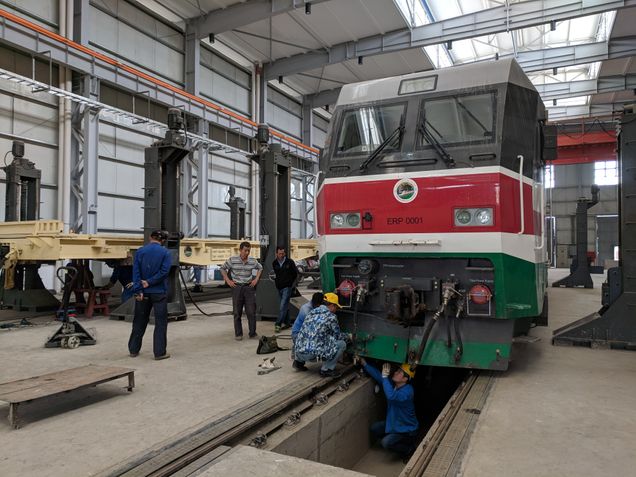Laying the Tracks: The Political Economy of Railway Development in Ethiopia’s Railway Sector and Implications for Technology Transfer

In a new working paper, Global China Initiative Fellow Yunnan Chen examines the railway sector in Ethiopia and discusses the implications of local decision-making on technology, skills transfer, and Chinese contractors.
Following the international surge of Chinese capital and companies in the last decade and the rise of the Belt and Road Initiative, many African countries have sought Chinese financing and technology for significant infrastructure investments. Railway construction is one manifestation of China’s economic statecraft in Africa and a sector that African leaders have eagerly leveraged. This paper examines the case of Ethiopia’s Chinese-financed railway projects, including the Addis-Djibouti Railway, contrasting it to Ethiopia’s experience with subsequent European/Turkish financed projects.
Through the lens of African agency, the case shows the opportunities, missed and taken, by Ethiopian actors in leveraging external partners, focusing on areas of technology and skills transfer. The different financing arrangements entail different relationships—one politicized, one commercial—offering different scopes of bargaining power: while the political relationship offers greater flexibility regarding financing, the commercial project has been more successful for exercising agency in relation to contractors.
Yunnan Chen is a Senior Research Officer at the Overseas Development Institute and PhD Candidate at Johns Hopkins School of Advanced International Studies. Her work focuses on development finance institutions, and the role of China in the development finance architecture. Previously, she was a Global China Initiative Fellow at Boston University’s Global Development Policy Center, and a pre-doctoral fellow at the Centre for Global Development.
Read the Working Paper